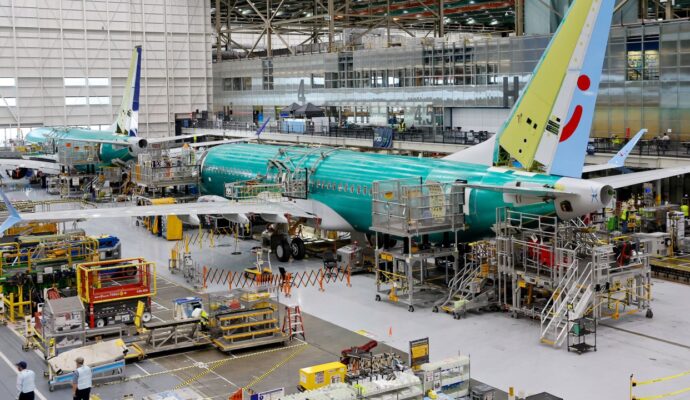Wei said US sanctions aimed at preventing China’s progress in advanced process nodes bodes ill for the country as the current emphasis on legacy nodes is vulnerable in the long run.
Ni Guangnan, a chip expert at the Institute of Computing Technology under the Chinese Academy of Sciences, said the country should take advantage of the size of its domestic market to spur growth of local players such as US sanctions-hit Yangtze Memory Technologies Corp. Ni said China was able to produce advanced NAND flash memory chips even without access to extreme ultraviolet lithography tools, which are barred under Washington’s export controls.
The concerns flagged at the conference come as Washington is reportedly set to further tighten trade restrictions, impacting the ability of Intel and Nvidia to ship advanced artificial intelligence chips to China-based customers. This has prompted lobbying efforts by the US Semiconductor Industry Association and some top American chip makers, including Intel, to try and convince the Biden administration to show restraint.
A staff member for Shanghai Precision Measurement Semiconductor Technology talks to a visitor at the Semicon China trade fair in Shanghai, June 29, 2023. Photo: Reuters
The impact of the restrictions was visible at the three-day event, as few US executives were present. Under new rules introduced last October, US citizens are restricted from contributing to advanced semiconductor development in China. Washington has imposed tighter restrictions on the type of technology China-based foundries can use. It also convinced Japan and the Netherlands, two of the world’s leading suppliers of chip making tools, to align with its goals of curbing China’s ability to develop advanced semiconductors.
As China becomes marginalised from the global chip supply chain, cooperation has increased among the US, EU, Japan, South Korea and Taiwan. Taiwan Semiconductor Manufacturing Co (TSMC) and Samsung Electronics both committed to investing billions of dollars to build advanced wafer fabs in the US, while US chip giant Intel will invest an initial 17 billion euros (US$19 billion) in a leading-edge mega-fab in Germany.
Nanjing, home to more than 500 semiconductor companies, has emerged as a stronghold in eastern Jiangsu province for China’s chip industry, along with the neighbouring tech manufacturing hubs of Wuxi and Suzhou.
In 2016, TSMC, the world’s largest contract chip maker, opened a foundry in Nanjing, which is currently capable of 16-nanometre and 28-nm process nodes, with a capacity of 350,000 wafers a month.


